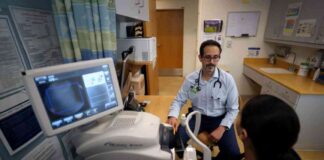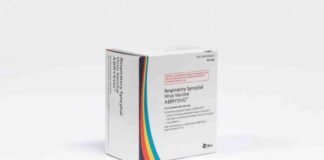Early Sugar Exposure and Diabetes Risk
Recently, a study published in Science examined the impact of early sugar exposure on long-term health outcomes, specifically in relation to type 2 diabetes and hypertension risk. The study focused on individuals born before and after World War II-era British sugar ration rules. During this time, individuals were limited to a daily ration of sugar equivalent to about 6 to 7 teaspoons, in line with today’s dietary guidelines from the World Health Organization.
After the sugar ration rules were lifted in 1953, sugar consumption nearly doubled, with individuals consuming an average of 80 grams of sugar per day. The study found that those who had lower sugar consumption in the womb and during toddlerhood had a lower risk of developing type 2 diabetes and hypertension compared to those with higher sugar intake. Additionally, individuals in the low-sugar cohort who did develop diabetes and hypertension did so four and two years later, respectively, than their high-sugar counterparts.
This research sheds light on the long-term effects of early sugar exposure and emphasizes the importance of monitoring sugar intake from a young age to reduce the risk of chronic conditions later in life. In a world filled with ultra-processed sugary snacks, understanding the impact of sugar on our health is crucial for making informed dietary choices.
Stem Cell Transplants and Aging
Stem cell transplants, also known as bone marrow transplants, have been used for decades to treat various conditions. A recent study published in Nature explored the impact of stem cell transplants on recipient’s bodies and the longevity of transferred cells. Researchers sequenced the stem cells of transplant recipients and their sibling donors to compare differences.
The study revealed that recipients who received stem cells from younger donors (aged 18-47) had a higher success rate, with ten times more stem cells taking hold compared to recipients of older donor cells (aged 50-66). Furthermore, the recipients’ blood systems were found to age approximately 10-15 years more than their donors’, primarily due to lower stem cell diversity.
Understanding the factors that contribute to successful stem cell transplants can lead to improvements in treatment outcomes and overall patient health. By identifying the age-related impact on stem cell longevity, healthcare providers can optimize transplant procedures and enhance the effectiveness of this treatment method.
The Role of Science in Partisan Politics
In light of the recent election and the declining trust in science, questions have been raised about the role of scientific journals in endorsing political candidates. While some journals have taken a stance on presidential endorsements, experts argue that science should remain impartial and not be swayed by political affiliations.
Anil Oza’s analysis of how journals like Nature, Science, JAMA, and NEJM approach political endorsements provides insight into the intersection of science and politics. Despite the inherently political nature of scientific research, maintaining a neutral stance is essential to upholding the credibility and integrity of the scientific community.
Furthermore, in a special edition of the D.C. Diagnosis newsletter, readers can explore the potential impact of the presidential election on healthcare policies and systems. By staying informed and engaged in the intersection of science and politics, individuals can advocate for evidence-based decision-making and prioritize public health initiatives.
Empathy in Healthcare Communication
Research indicates that many patients withhold information from their doctors out of fear of judgment or negative consequences. Samantha Kleinberg’s work emphasizes the importance of fostering empathy and open communication in healthcare settings to encourage patients to share their concerns and experiences freely.
By creating a supportive and non-judgmental environment, healthcare providers can establish trust with their patients and uncover critical information that may impact treatment outcomes. Kleinberg’s findings underscore the significance of patient-doctor relationships in promoting holistic and patient-centered care.
In conclusion, understanding the impact of early sugar exposure on long-term health, optimizing stem cell transplant procedures, maintaining the integrity of science in politics, and prioritizing empathy in healthcare communication are essential components of promoting public health and advancing medical research. By staying informed and engaged in these critical areas, individuals can contribute to a healthier and more equitable society.


















